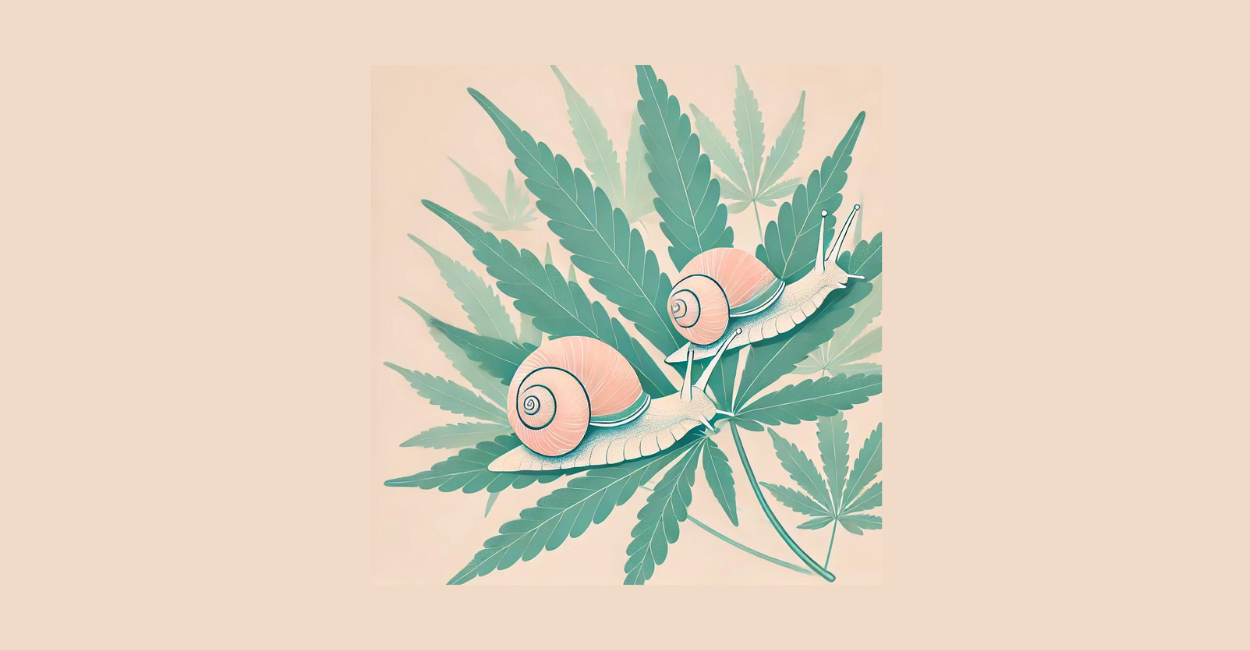In this article, we delve into the world of "Slugs and Snails in Cannabis Cultivation". These slimy intruders are like the slow-motion ninjas of your garden, stealthily munching their way through your precious plants. We’ll share our experiences in identifying slug and snail damage, discuss their feeding habits, and reveal effective strategies for keeping these molluscan marauders at bay. Get ready to arm yourself with the knowledge to protect your cannabis crop from these slippery foes.
Identifying Snail and Slug Infestation
Snails and slugs are voracious pests that can cause significant damage to cannabis plants. These pests often leave irregular, ragged holes in leaves and jagged edges on the sides. They sometimes leave slime trails on the leaves or near the soil, and in the worst cases, they can completely devour young plants.
Signs of Snail and Slug Infestation:
- Irregular, ragged holes in leaves
- Jagged edges on the sides of leaves
- Slime trails on leaves and near the soil
- The complete disappearance of young plants
Causes of Snail Infestation
Snail infestations can be encouraged by several factors:
- Moist growing environment: Snails thrive in moist and shady conditions, which provide ideal breeding grounds.
- Organic material: Snails are attracted to decaying plant material and mulch, which provide both food and shelter.
- Lack of natural predators: A lack of natural predators can lead to an increase in the snail population. Without toads, birds, or ground beetles, snails can thrive unchecked.
Based on our gardening experience, it is important to control these factors to prevent snail infestations. Traditional home remedies often used in vegetable gardens can also be effective for cannabis plants.
Prevention and Treatment of Snail Infestation
Effective prevention and treatment methods include:
Manual Removal
Manual removal of snails is a proven method, especially in the early morning or at night when snails are most active. Collect the snails and relocate them far from your garden. This method is simple and effective when performed regularly.
Attracting Natural Predators
Attracting natural predators is a sustainable method for snail control. Here are some tips to attract these beneficial creatures to your garden:
- Toads and frogs: Create small ponds to attract these predators. They feed on snails and other pests. In one of our cultivation projects, we created a pond and noticed that snails were no longer an issue.
- Ground beetles: Mulch and leaf litter provide them with a habitat. Ground beetles are effective snail hunters.
- Birds: Set up bird feeders to attract birds to your garden. Many birds enjoy eating snails.
- Hedgehogs: Create dense undergrowth or leaf piles where hedgehogs can find shelter.
- Slow worms: Compost heaps and wood piles offer ideal habitats for these helpful reptiles.
Using Traps
Traps are a humane and pesticide-free method for controlling snails:
- Live traps: These traps capture snails without killing them. You can then release the snails in a distant area.
- Beer traps: Fill plastic cups with beer and embed them in the ground so the rim is at soil level. The snails are attracted to the smell of beer and drown. This method is simple and effective.
Using Nematodes
Parasitic nematodes are microscopic worms that infect and kill snails. They are watered into the soil and provide a biological method for snail control.
Copper Barriers
Copper barriers are an effective method to repel snails, as snails avoid contact with copper:
- Copper wire or mesh: Place around the base of plants to keep snails away.
- Copper tape: Attach to the edges of beds or containers. This barrier is difficult for snails to cross.
Using Desiccating Materials
Certain materials can desiccate and deter snails. This method is simple and effective:
- Eggshells: Crush into a powder and spread around plants. Snails avoid these sharp edges.
- Diatomaceous earth: Silica skeletons of algae, similar to eggshells. Simply sprinkle on the ground.
- Sawdust and coffee grounds: These materials have a desiccating effect on snails and can be spread around plants.
Using Companion Plants
Companion plants can deter snails and serve as sacrificial plants to protect your cannabis plants:
- Basil, lettuce, spinach, and cabbage: These plants attract snails and divert them from the cannabis plants. They also serve as an early warning system for impending infestations.
Important Note:
Effectively combating snail and slug infestations is crucial for the health and productivity of your cannabis plants. If you notice signs of infestation such as irregular holes in leaves or slime trails, adjust your pest control measures. Manual removal, attracting natural predators, and using barriers and traps can help effectively combat snails. For more information on controlling snails, see our article Beneficial Insects in Cannabis Cultivation against Snails.
Conclusion:
Snail infestations can significantly affect the growth and yield of cannabis plants. Early detection, proper treatment, and preventive measures are essential. Our experience shows that a proactive approach and the use of effective pest management strategies ensure healthy, productive cannabis plants.
Disclaimer
This website's content is for informational use only and should not be considered medical or legal advice. Always consult a healthcare professional for health-related issues. Be aware of local regulations regarding cannabis cultivation. We are not liable for any actions taken based on this information.

